7 Cool Facts About Coffee We Didn’t Know Before
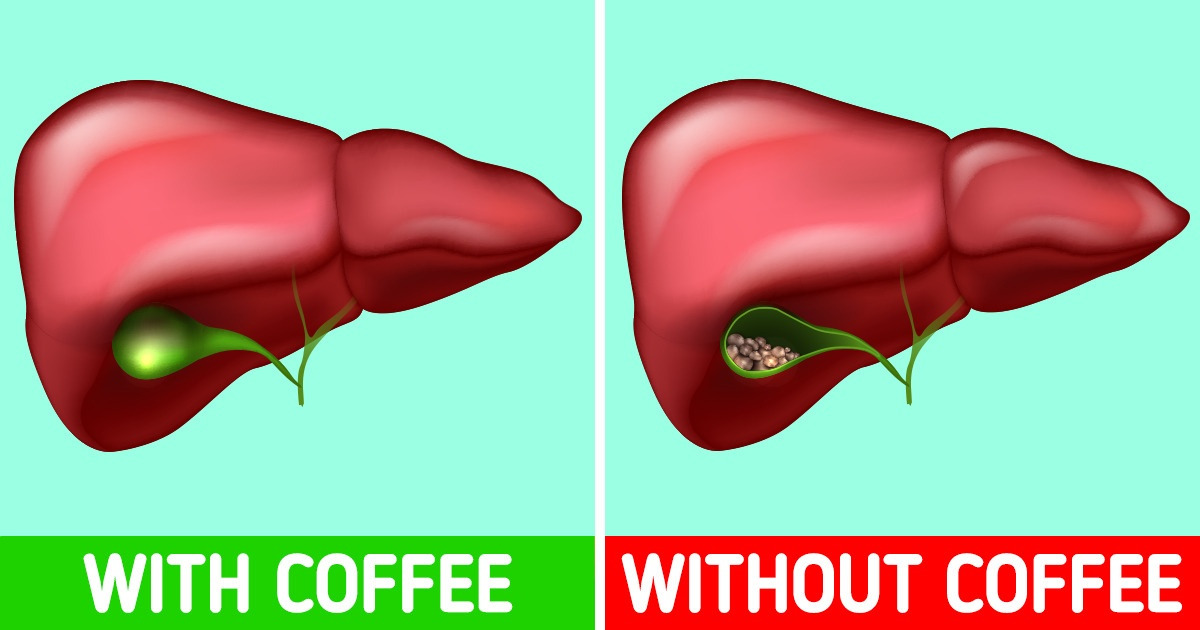
There are lots of popular beliefs about coffee, and not all of them are true. Perhaps it may come as a surprise, but coffee doesn’t cause insomnia or addiction, nor is it dangerous for pregnant women. On the contrary, it has health benefits some people have no idea about.
Coffee doesn’t cause addiction.

Caffeine is a stimulant of the central nervous system and is indeed mildly addictive when consumed regularly. Despite this, you can easily give up on drinking coffee. In most cases, the sensations caused by a lack of caffeine (fatigue, poor concentration, irritability) subside within a few days. For this reason, experts don’t consider coffee to be an addictive product.
Contrary to popular belief, pregnant women can drink coffee.
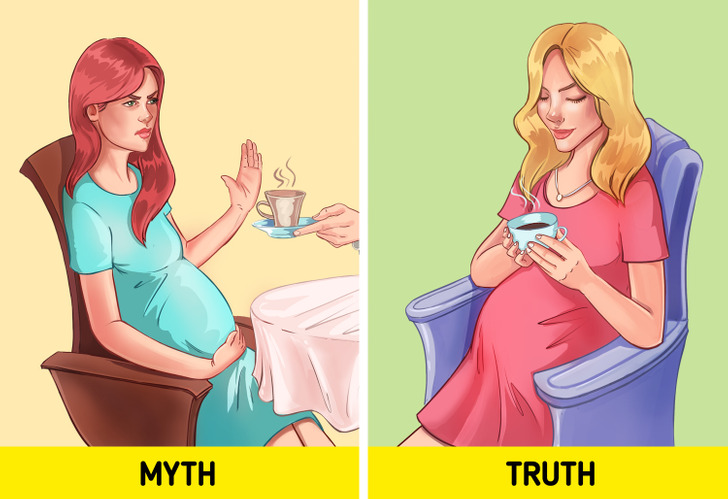
Though it’s recommended for pregnant women and those who want to have kids to cut back on the amount of coffee they drink, most experts believe that 200 mg of caffeine a day is safe. It equals about 1 big cup of coffee.
However, since the indications and contraindications are often individual, it’s always best to consult your doctor. They will tell you whether you can drink coffee or not and set the recommended daily norm for the drink.
Coffee doesn’t help you to burn calories, but it dulls your hunger.
Coffee doesn’t cause insomnia.
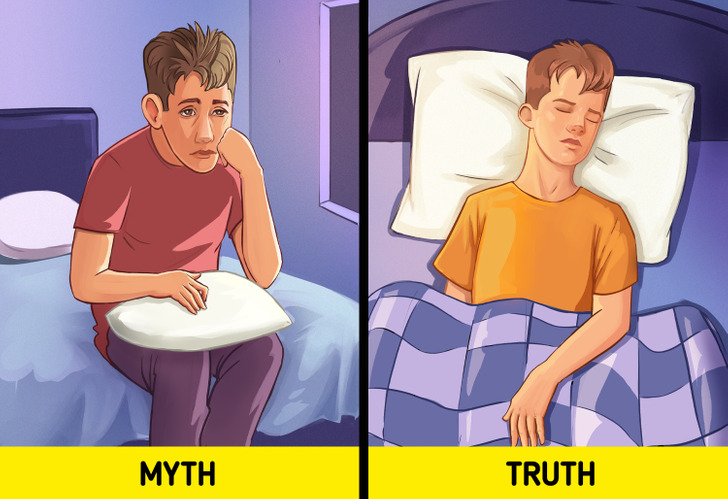
Researchers didn’t find any connection between the amount of consumed coffee and the quality of sleep. This could be proof that coffee itself doesn’t cause insomnia. You can safely drink it in the morning without fearing that it will affect your sleep. But since caffeine has a stimulating effect, you should stop drinking it at least 6 hours before bed.
Coffee doesn’t cause dehydration.
The myth that coffee can cause dehydration dates back to a 1928 study where the active use of coffee was associated with increased urination. Due to this, it has been suggested that the drink has a diuretic effect. The spread of the idea cemented coffee’s reputation as a dehydrating product.
Over the years, this assumption was refuted, and today scientists are sure that coffee provokes just as much urination as other drinks.
Actually, dark roasted coffee beans have less caffeine.
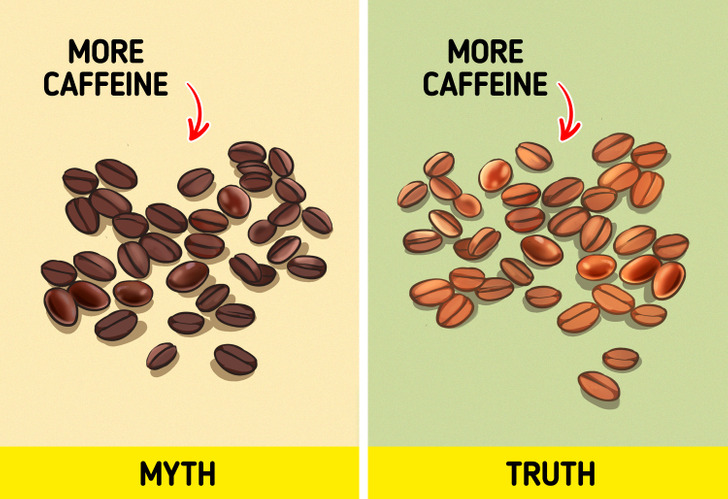
The concentration of caffeine is higher in lightly roasted beans. And though dark roasted beans are often richer and deeper in flavor, this has nothing to do with the amount of caffeine in them.
Coffee is not harmful to your health. In fact, it can even be beneficial if you consume it moderately.
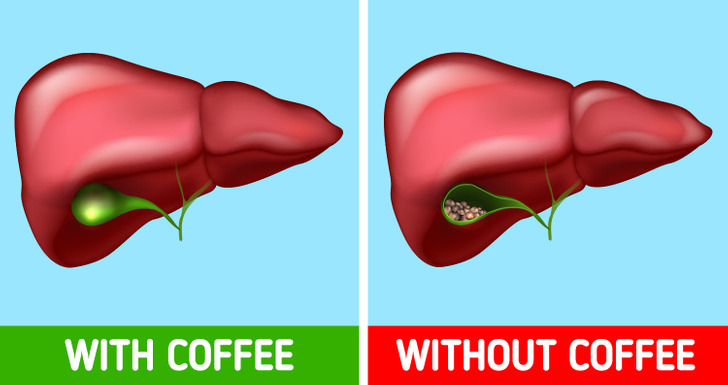
Today, scientists are more and more inclined to believe that coffee is healthy provided it’s consumed moderately. Drinking small amounts of coffee is thought to reduce the risks associated with Parkinson’s disease, heart attack, stroke, liver disease, and type 2 diabetes.
According to a study, men who drink 2 to 3 cups of coffee with caffeine a day have a 4% lower risk of developing gallstones than those who don’t drink coffee regularly, and men who drink 4 or more cups a day have a 45% lower risk. Caffeine is known to stimulate contractions in the gallbladder and lower cholesterol concentrations in bile, which is associated with a lower risk of developing gallstones.
Do you like coffee? How many cups a day do you drink?

